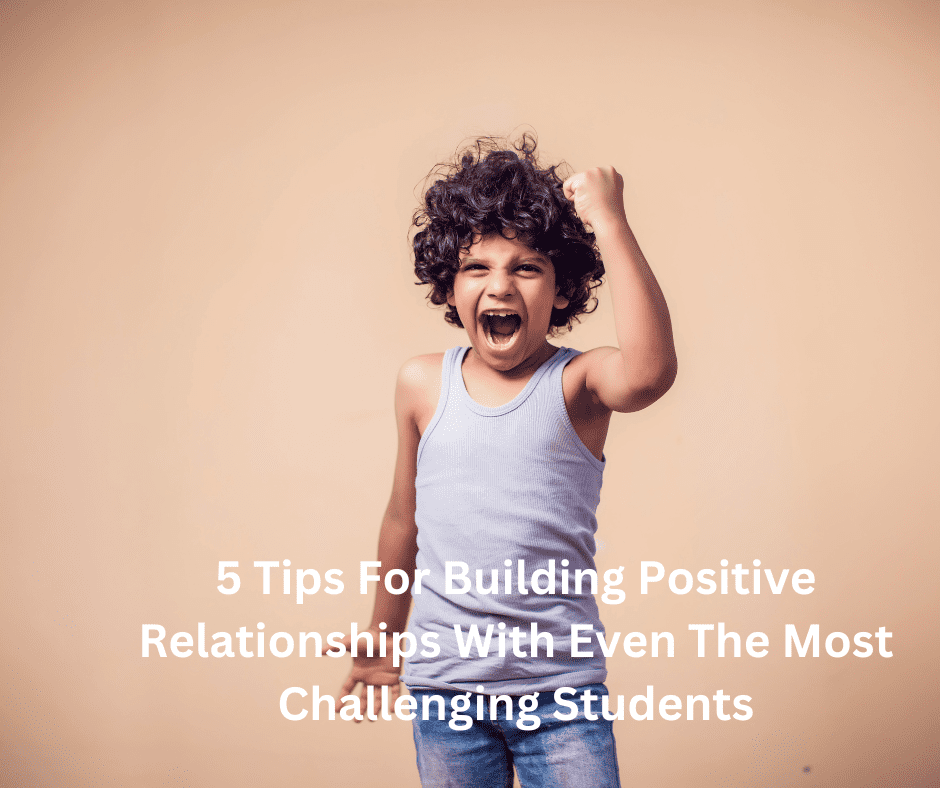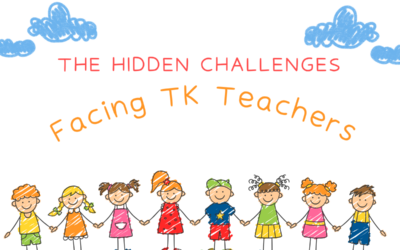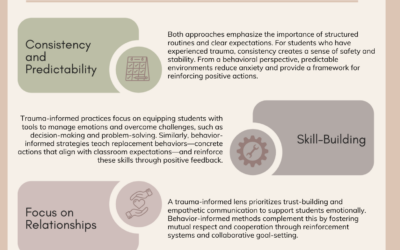Positive Relationships with Challenging Behaviors
Building relationships with challenging students is one of the most difficult and least discussed parts of our jobs in education. I have found that there is a real lacking of advice out there that focuses on building positive relationships with challenging behaviors. It is almost as if no one wants to acknowledge that some students are really hard to build positive relationships with. I am here to tell you: there are students that are harder to build positive relationships with but that DOES NOT make you a bad person or a bad teacher.
Although it may be more challenging and take more time, it is possible to build positive relationships with those tough kids and once you do, they can be the most rewarding relationships you ever have!
Let’s check out some tips on how to turn those challenges into opportunities:
Notice These Challenging Students
Sometimes students are difficult to build relationships with. They stay in the background and are resistant to “typical attempts” to connect and build relationships. It can be tempting to just assume that they don’t want to connect and leave them alone. Even if a student doesn’t connect in the way you are used to or even seems to be adverse to your attempts, take the time to notice them. Do this as often as it takes and you will start to build relationships. You could be the first teacher to ever take the time to do that, and change their whole life!
Identify the Feelings in You That These Students Bring Up
Challenging students can bring up a lot of feelings in us. It is critical to be able to identify what these are and understand how these feelings impact our ability to interact with students. For example; we may have a student who is challenged by being given a direction without having any options. As a teacher, we may feel or assume this is because they are “spoiled” at home. This thought then leads us to behave in a way that blocks any chance of building a positive relationship with the student. By understanding our feelings about challenging students, we can bring those feelings into the light and make changes to help us be more successful in building relationships.
By becoming aware of the feelings coming up in you, it can become easier to change your thoughts. If you need a visual on how to make this…. sometimes very tricky… transition in your thinking about a student’s actions, and your response; I’ve decided to include a download below that would be great to print and keep on hand as practice if you have an exceptionally challenging student who triggers a lot of emotions in you.
Praise in Public, Correct in Private
Challenging students hear A LOT of corrections all day long. Sentiments of praise are often few and far between. For students who receive a lot of corrections, the other students quickly begin to see them as “the bad kid” in the class and this then can lead to social issues for the student. That piled on top of the challenging behaviors ends up making things more complicated. One of the most powerful things we can do is make a point every day to praise these students in front of the class as often as we can. Corrective feedback is an important part of managing behaviors, but the power really comes when that feedback is given in a private, supportive manner. However, make sure to keep the praise meaningful.
Let Each Day be a Fresh One
There is nothing worse for students to feel like everyone is expecting them to “be bad”, day after day. This often leads to an increase in challenging behaviors and things becoming more challenging as the year moves on. Instead of expecting things to go badly as you head into each day, try switching your thinking. Challenging students can be very in touch with how others feel about them. If they know that a teacher expects them to be challenging, they will often live up to that expectation. We all deserve a fresh start! Leave a hard day with a student behind. Start the next morning fresh with a kind word, and it might just be enough for them to turn their behavior around for that day.
Find Their Interests and Meet Them There
Sometimes building positive relationships can be as easy as asking questions. Ask your student about something they are interested in. Then, bring in something related to their “thing” or interests into your classroom lessons or activities. Effective teachers teach the students they have not the students they wish to have. So if you have a challenging student that you know loves greek mythology, do a google search, look up a few facts, and try connecting with the student through that.
Never Stop Learning…
And sometimes the way I learn the most is in response to blogs like these. I’d love to hear some things you have found to help build positive relationships with those challenging kiddos! *And don’t forget… if you are really struggling with behaviors, we offer an amazing Bite Sized Behaviors course right here on Teaching Untangled!





